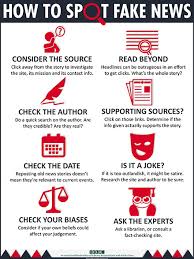With all of the media coverage things receive now-a-days, who is to say what news is real and what news is fake? Factual news sources seem to be even harder and harder to find today among the influx of the internet. New study from theonion.com “finds ‘the onion’ has never been more popular, more beloved, or more respected”, however The Onion publishes satire news.

Satire news “is a type of parody presented in a format typical of mainstream journalism, and called a satire because of its content” which relies on dry humor. The Onion, quoted America’s Finest News Source creates some of the most popular fake news articles around. The American based digital media company then disturbs these news articles on an international, national, and local news level allowing for mass dialect and conversation pertaining to a false premise. The Onion‘s articles cover current events, both real and fictional, “satirizing the tone and format of traditional news organizations with stories, editorials, op-ed pieces, and man-in-the-street interviews using a traditional news website layout and an editorial voice modeled after that of the Associated Press” (1999). The publication’s humor often depends on presenting mundane, everyday events as “newsworthy, surreal, or alarming (such as “Rotation of Earth Throws Entire North American Continent into Darkness”)” (1999) which often cause mass painic. In 1999, comedian Bob Odenkirk praised the publication stating, “It’s the best comedy writing in the country, and it has been since it started” (1999) which gave The Onion a lot more attention. Please take a few minutes to watch “How to Spot Fake News” before continuing through this post!
NPR reporters article, “Area Man Realizes He’s Been Reading Fake News For 25 Years” (2013) published on NPR.org, draws on how a satire news source was presumed to be true news by an area man for over 25 years! The NPR reporters notify their audience about The Onion, which is a parody news source that creates articles that make “people uncomfortable” by making something serious, funny. The reporters use headlines from theonion.com as examples of the dry humor. The purpose of the article is to inform the audience that not all news is real! I think the audience of “Area Man Realizes He’s Been Reading Fake News For 25 Years” (2013) are politically engaged individuals because NPR.org is not for everyone. I personally enjoy reading articles from The Onion, because although they are not always completely factual, they provide a slight sense of comic relief from the normal tragic news report.

So next time you are scrolling through Facebook or InstaGram and see a news article titled “Advanced Alien Civilization Discovers Uninhabitable Planet”, please do your research and figure out if the news you are reading is real or fake! Fact check, fact check, and fact check again! Happy news!

Sources:
Dionne, Alexandria (January 8, 1999). “The Onion moves to the Internet”. Entertainment Weekly. Retrieved June 21, 2018.
https://www.npr.org/2013/08/29/216439725/area-man-realizes-hes-been-reading-fake-news-for-25-years
Lauren,
This blog posting has many good ideas and reasons behind why parody news reeks,The Onion included, as well as give an inside feeling of what separates parody news from real world news. The video illustrates solid points on spotting real vs. fake news article and propaganda. Nice use of connecting the words and pictures together to make a clear idea to relay information. Keep up the great work!
LikeLike
Lauren,
Great post! I enjoy parody news to add comedy. I remember, very embarrassing, i was reading the onion I had not realized it was a satire website and believed it. I think that we are so ready to believe most things that we dont do our research on the sources and also knowing how to spot fake news.
LikeLiked by 1 person
Hi Lauren,
Great post. I too enjoy reading the onion. All too often I will see a news article that shocks me in my Facebook feed, just to find out its actually just an onion article. Luckily, this happens to more people than just me! here is an article of other times the onion has tricked famous, or large amounts of people.https://abcnews.go.com/International/times-people-fooled-onion/story?id=31444478
LikeLike
That’s a great fake newspaper front page. Ah, the Onion.
LikeLike